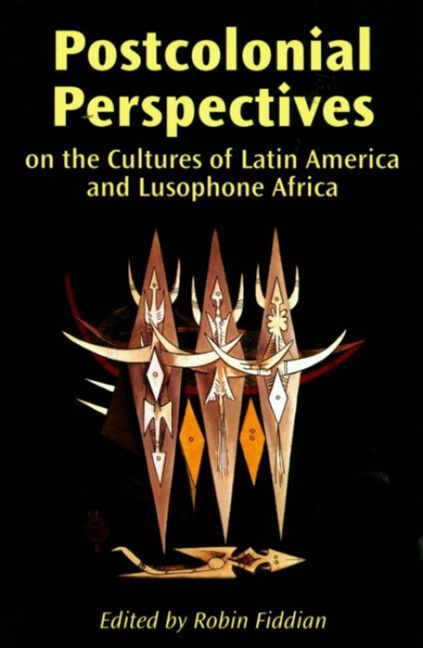Book contents
- Frontmatter
- Contents
- Preface
- Locating the Object, Mapping the Field: the Place of the Cultures of Latin America and Lusophone Africa in Postcolonial Studies
- Chapter One On Metropolitan Readings of Latin American Cultures: Ethical Questions of Postcolonial Critical Practice
- Chapter Two Ig/noble Barbarians: Revisiting Latin American Modernisms
- Chapter Three José Carlos Mariátegui: Culture and the Nation
- Chapter Four Doing Time in Peru: the Poetics of Multitemporality as Method for Cultural History
- Chapter Five America, Americanism and the Third World in the Work of Leopoldo Zea
- Chapter Six Fernando Ortiz's Transculturation: the Postcolonial Intellectual and the Politics of Cultural Representation
- Chapter Seven Caribbean Masks: Frantz Fanon and Alejo Carpentier
- Chapter Eight Colonial Crosswords: (In)voicing the Gap in Mia Couto
- Index
Preface
- Frontmatter
- Contents
- Preface
- Locating the Object, Mapping the Field: the Place of the Cultures of Latin America and Lusophone Africa in Postcolonial Studies
- Chapter One On Metropolitan Readings of Latin American Cultures: Ethical Questions of Postcolonial Critical Practice
- Chapter Two Ig/noble Barbarians: Revisiting Latin American Modernisms
- Chapter Three José Carlos Mariátegui: Culture and the Nation
- Chapter Four Doing Time in Peru: the Poetics of Multitemporality as Method for Cultural History
- Chapter Five America, Americanism and the Third World in the Work of Leopoldo Zea
- Chapter Six Fernando Ortiz's Transculturation: the Postcolonial Intellectual and the Politics of Cultural Representation
- Chapter Seven Caribbean Masks: Frantz Fanon and Alejo Carpentier
- Chapter Eight Colonial Crosswords: (In)voicing the Gap in Mia Couto
- Index
Summary
The eight essays collected in this volume are conceived as a set of interventions in a rapidly expanding and often contentious field of debate. The diverse objects of their attention represent the cultures of the former colonial territories that belonged to the historic empires of Spain and Portugal in Latin America and parts of Africa. The uniform designation of those areas as colonies would be uncontroversial, were it not for a polemical study of 1992/95 in which Jorge Klor de Alva denied the proposition that ‘(Latin) American experience’ (sic) stretching over more than three centuries after Columbus's landfall in 1492 could be usefully described in terms of colonialism. Contesting that view, the essays that make up this volume assume that considerations to do with colonialism and colonialist discourse are indeed germane to Latin America and Portuguese-speaking Africa. Furthermore, they unite in considering the cultures of Latin America and Lusophone Africa through a set of critical paradigms, issues and perspectives which began to develop around the mid-1980s, largely outside the parameters of Latin American and Luso-Brazilian studies.
The apparent marginalization of these specialisms within the relatively new subject of postcolonial studies has often been noted and could easily be backed up by a quantitative survey of the few items that have made their way into landmark publications such as the readers compiled by Ashcroft, Griffith and Tiffin (1989 and 1995) and by Patrick Williams and Laura Chrisman (1993). Yet, from a number of viewpoints, that marginalization, attributable as it may be to the vagaries and partialities of academic taste, is unjustified and in need of interrogation. By the time those readers were being planned, Peter Hulme (in 1985 and 1986), Jean Franco (in 1988), and Mary Louise Pratt (in 1992) had all published major work on colonial discourse in the Americas which could have prevented some of the more glaring omissions and generalizations that blighted Edward Said's references to Latin America in Culture and Imperialism (1993). By the mid-1990s, studies by Hugo Achugar, Peter Hulme, Walter Mignolo, Nelly Richard and Roberto Schwarz showed both a commanding range of knowledge and a high degree of critical acumen concerning the relevance of postcolonial theory to Latin American cultures.
- Type
- Chapter
- Information
- Publisher: Liverpool University PressPrint publication year: 2000

